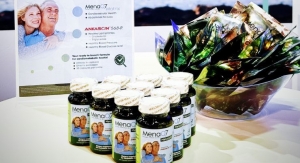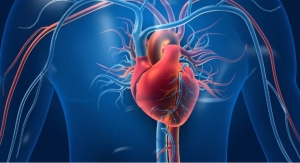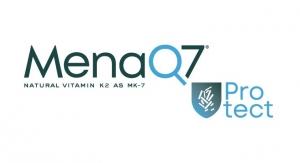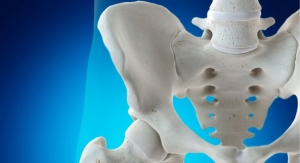06.08.21
A new 1.5-year clinical trial using NattoPharma’s MenaQ7 Vitamin K2 as MK-7 has been registered on ClinicalTrials.gov. The trial will examine the cardiovascular impact in a patient population and will use the highest dosage of K2 as MK-7 to date: 1 mg daily.
The new multi-center, randomized, placebo-controlled, open-label intervention clinical trial, “The Effect of Vitamin K2 Supplementation on Arterial Stiffness and Cardiovascular Events in PEritonial DIAlysis (VIKIPEDIA)”, will be conducted with Peritoneal Dialysis (PD) patients. The investigators at Aristotle University of Thessaloniki in Greece will study the effect of K2 supplementation (through normalization of dp-ucMGP) on arterial stiffness and the occurrence of cardiovascular events.
Chronic Kidney Disease (CKD) is a state of progressive vascular calcification and cardiovascular disease. End Stage Kidney Disease patients receive renal replacement therapy either by hemodialysis or by PD, according to lead researcher Stefanos Roumeliotis , MD, PhD. “Several studies have shown that hemodialysis patients have vitamin K depletion and accelerated vascular calcification, and this finding led to the initiation of several randomized controlled trials exploring the effect of vitamin K2 supplementation on vascular calcification in hemodialysis patients.”
“VIKIPEDIA is the first study to assess whether high dosage of Menaquinone-7 could improve arterial stiffness, mortality, cardiovascular disease, 24-hour ambulatory blood pressure and dialysis efficacy in patients with PD,” he explained. “MenaQ7 was chosen to be used in the study because the compound showed its efficacy to improve vitamin K status in many clinical trials with kidney patients.”
At baseline, all eligible patients who have provided a written, informed consent will be enrolled in the study. Αortic stiffness and vitamin K status will be assessed by PWV and plasma dp-ucMGP levels, respectively. Before randomization, the investigators will draw blood (serum and plasma) and PD fluid samples from all patients to measure blood count and routine biochemical parameters, including urea, creatinine, potassium, sodium, calcium, phosphorus, c-reactive protein, alkaline phosphatase, albumin, parathormone, 25-OH D3, magnesium, glycated hemoglobin, thyroid function hormones.
Since both vitamin D and magnesium are considered of utmost importance in vitamin K metabolism, after baseline, patients with vitamin D and/or magnesium depletion will be treated with oral supplements to achieve normal levels of both elements, before randomization. The cohort will then be categorized to one of the two groups (placebo or active group) and the treatment period will last 1.5 years. To ensure that the two parallel groups will include patients that will not differ significantly in vitamin K and stiffness, patients will be accordingly stratified. After randomization, all patients will continue their routine, standard medical treatment and patients in the treatment group will additionally receive daily, per 1 mg of vitamin K2 (MenaQ7, Nattopharma, ASA, Hovik, Norway).
VIKIPEDIA represents two important firsts, according to according to Dr. Hogne Vik, Chief Medical Officer with NattoPharma. “It will be the first trial in PD patients, and the first time this high dosage of vitamin K2 as MK-7 will be used, which supports high safety profile of this nutrient. We are thrilled because this study will add to the already substantial evidence that MenaQ7 Vitamin K2 is an important cardiovascular-support nutrient, and it presents great hope for an at-risk patient population.”
The study is scheduled to start in September 2021. The researchers will collaborate with long-time NattoPharma research partner Masstricht University to evaluate vitamin K status.
The new multi-center, randomized, placebo-controlled, open-label intervention clinical trial, “The Effect of Vitamin K2 Supplementation on Arterial Stiffness and Cardiovascular Events in PEritonial DIAlysis (VIKIPEDIA)”, will be conducted with Peritoneal Dialysis (PD) patients. The investigators at Aristotle University of Thessaloniki in Greece will study the effect of K2 supplementation (through normalization of dp-ucMGP) on arterial stiffness and the occurrence of cardiovascular events.
Chronic Kidney Disease (CKD) is a state of progressive vascular calcification and cardiovascular disease. End Stage Kidney Disease patients receive renal replacement therapy either by hemodialysis or by PD, according to lead researcher Stefanos Roumeliotis , MD, PhD. “Several studies have shown that hemodialysis patients have vitamin K depletion and accelerated vascular calcification, and this finding led to the initiation of several randomized controlled trials exploring the effect of vitamin K2 supplementation on vascular calcification in hemodialysis patients.”
“VIKIPEDIA is the first study to assess whether high dosage of Menaquinone-7 could improve arterial stiffness, mortality, cardiovascular disease, 24-hour ambulatory blood pressure and dialysis efficacy in patients with PD,” he explained. “MenaQ7 was chosen to be used in the study because the compound showed its efficacy to improve vitamin K status in many clinical trials with kidney patients.”
At baseline, all eligible patients who have provided a written, informed consent will be enrolled in the study. Αortic stiffness and vitamin K status will be assessed by PWV and plasma dp-ucMGP levels, respectively. Before randomization, the investigators will draw blood (serum and plasma) and PD fluid samples from all patients to measure blood count and routine biochemical parameters, including urea, creatinine, potassium, sodium, calcium, phosphorus, c-reactive protein, alkaline phosphatase, albumin, parathormone, 25-OH D3, magnesium, glycated hemoglobin, thyroid function hormones.
Since both vitamin D and magnesium are considered of utmost importance in vitamin K metabolism, after baseline, patients with vitamin D and/or magnesium depletion will be treated with oral supplements to achieve normal levels of both elements, before randomization. The cohort will then be categorized to one of the two groups (placebo or active group) and the treatment period will last 1.5 years. To ensure that the two parallel groups will include patients that will not differ significantly in vitamin K and stiffness, patients will be accordingly stratified. After randomization, all patients will continue their routine, standard medical treatment and patients in the treatment group will additionally receive daily, per 1 mg of vitamin K2 (MenaQ7, Nattopharma, ASA, Hovik, Norway).
VIKIPEDIA represents two important firsts, according to according to Dr. Hogne Vik, Chief Medical Officer with NattoPharma. “It will be the first trial in PD patients, and the first time this high dosage of vitamin K2 as MK-7 will be used, which supports high safety profile of this nutrient. We are thrilled because this study will add to the already substantial evidence that MenaQ7 Vitamin K2 is an important cardiovascular-support nutrient, and it presents great hope for an at-risk patient population.”
The study is scheduled to start in September 2021. The researchers will collaborate with long-time NattoPharma research partner Masstricht University to evaluate vitamin K status.




























